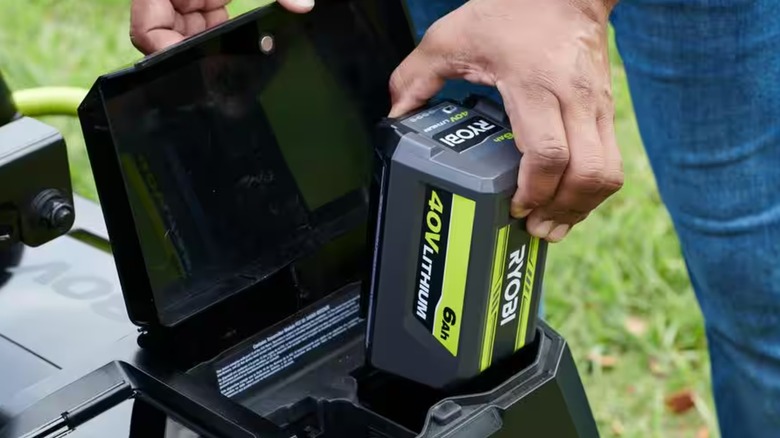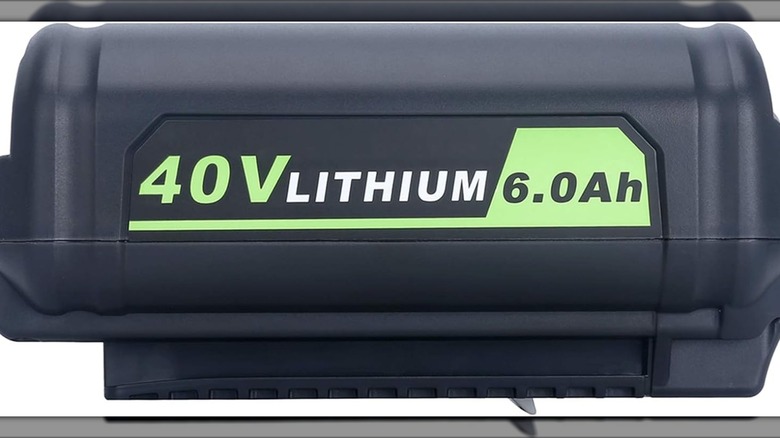Can You Use A Generic 40V Battery For Your Ryobi Tools?
We may receive a commission on purchases made from links.
If you're looking to make extensive use of one of Ryobi's various 40V battery-powered tools, you'll naturally need one or more of the brand's specialized battery packs. However, these individual battery packs can be prohibitively expensive — a single 6Ah 40V Ryobi battery pack will set you back $199.00 at Home Depot, and that's on top of whatever you're spending on the tools in the first place.
If that's not appealing to you, you might consider looking for third-party, generic alternatives. For what it's worth, there is a surprisingly large sphere of third-party brands that make knock-off batteries compatible with Ryobi's tools. They have the proper connecting rails to attach to a Ryobi tool, and at least on paper, they've got the same energy storage and delivery capacities for a fraction of the price. As the old saying goes, though, if it sounds too good to be true, it probably is. While these generic batteries are compatible with Ryobi products in the technical sense, using them could lead to severe damage to your tools and equipment, not to mention potential hazards to your own health and safety.
You can use a generic battery, but you really shouldn't
In theory, any generic battery with the same basic specs as a Ryobi 40V battery pack should be able to power the brand's tools just as well. This may appear to be the case the first time you attach a generic battery pack; the tool will certainly turn on, and you will be able to use it.
Here's the problem: Ryobi's battery packs are built with proprietary features and technology to optimize their connection and power delivery with its tools. They contain specially designed lithium cells that increase or decrease their power output as the situation demands, as well as specialized systems like Intellicell and Cool-Core to deliver more focused output without overheating. Conversely, a generic battery pack has none of these features. For all you know, someone just crammed a bunch of lithium cells into a casing and called it a 40V battery pack. It could have substantially less electricity than you actually need to run your tools, or more worryingly, far too much for your tools to handle.
It's also worth noting that Ryobi's battery packs undergo extensive stress and safety testing, as is required to represent the brand properly. Generic packs have undergone no such testing, or if they have, there's no way to prove how they fared. There's a very real chance that, if you attach a generic battery to your Ryobi tool, the sudden influx of unregulated electricity could completely fry its motor. They're equally unsafe to place on a Ryobi battery charger, which is also designed to interface directly with an official pack's systems. If the battery is overloaded, it could end up catching fire or exploding on the charger, endangering anyone who happens to be nearby.

